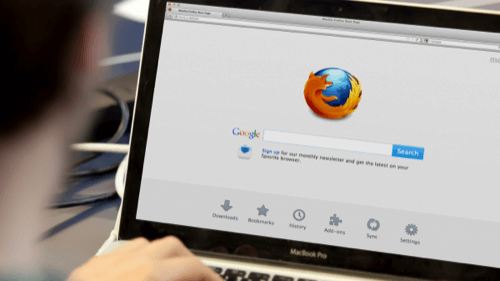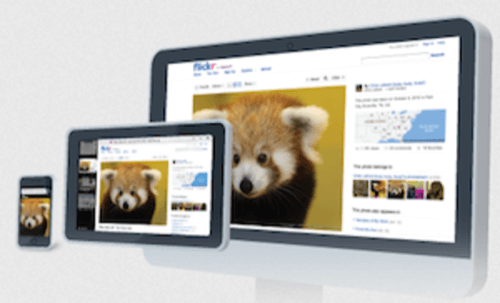
Editor’s note: This post was originally published by our partners at PopSugar Tech.

“You probably spend more time in your browser than in bed,” Johnathan Nightingale, VP of Firefox Engineering, said recently. And he’s right: spending lots of time on the Internet is our reality — guilty as charged. We (as in you, me, and the rest of the online world) rely on the Web a great deal, which is why our choice of browser, our means of transport within the World Wide Web, is crucial.
We’re “living online,” Johnathan says, pointing, clicking, and scrolling through most of our waking moments, and our browsers should help us, the globe’s cybercitizens, be more productive and communicate more effectively.

And while Web browsers (Chrome, Safari, Internet Explorer, etc.) may not seem all that different, little details can make a huge difference. We downloaded the latest build of Firefox for desktop and mobile, talked to some of the Mozilla crew about what’s next for the red panda of the Internet, and thought: maybe it’s time to switch browsers. Take a look at seven reasons to make the move to Mozilla Firefox, and let us know: will you switch?
1. A Browser With A Conscience
Mozilla is a nonprofit, which is not something you hear often when it comes to Internet companies. It’s mission is to build a more open, innovative web, which means that it is not concerned with trying to monetize your web activity or push you into services that you don’t want.
2. Tab-Forward
Firefox does tabs better than any other browser. “Pinning” tabs collapses them and makes more room on top of your browser window so that you can surf through more pages at once. The browser is also smart enough to know what tabs you have open, so if you navigate to that same site, it’ll automatically take you to that tab. No redundancy. There are also special “app tabs,” which use the Mozilla Social API to keep pages like Twitter, Facebook or Web mail running in the background. They’ll let you know if you have a notification so you don’t need to keep checking the page.
3. Drag-And-Drop Customization
This one is pretty self-explanatory. If you want to customize your toolbar, all you need to do is drag and drop items to rearrange or add new bookmarks. Firefox will show you a zoomed-out view of your custom browser so you know exactly what it’ll look like.
4. Reader Mode In Android
In March, the UX team introduced Project Readability, an initiative to make reading articles on the Web better for mobile. The team scoured the Web for a font that was “beautiful, but didn’t have too much character” to use in its reader mode for Android.
5. Hyper-Secure Browsing
Firefox has what’s called mixed content protection, which means that if it sees that a page is mostly secure but has some insecure stuff, like a plug-in it doesn’t recognize or a fishy-looking autoplay video, it’ll present you the webpage with the secure pieces intact and shut down the insecure content. Do Not Track is automatically enabled to prevent sites from tracking your web activity and selling that data to advertisers. The security settings aren’t buried somewhere, either; in Firefox, they’re easy to find, navigate, enable, and disable with the settings button and visual tab icons.
6. They Name Their Builds After Constellations
The next version of Firefox is code-named Australis. Because space is rad.
7. Firefox OS
We first heard news of a Firefox-powered smartphone back in February, a completely Web-based mobile operating system with HTML5 apps. On June 3, Foxconn announced a partnership with Mozilla to implement the Firefox OS on Foxconn devices. The phone will be affordable and the ecosystem is intended to be extremely accessible to developers. Johnathan is most anticipating the potential for the Firefox Phone to bring more people around the world online and offer them access to an open Internet.
There are many compelling reasons to make Firefox your default browser, but are they enough? When it comes down to it, the browser you choose depends on your Web habits and what works for your computer. Give Firefox 21 a stab (or Aurora if you’re an early adopter), and keep an eye out for the next version, Australis, when it becomes available.
More stories from PopSugar Tech:
Superhero Texts From Last Night
Behind The Lens Of Viewmatic’s Vintage Viewfinder
Cool Capture: Cloud Filter
Apple Stores Are Now Replacing Busted iPhone 5 Screens
Projecteo: The Tiny Instagram Projector









